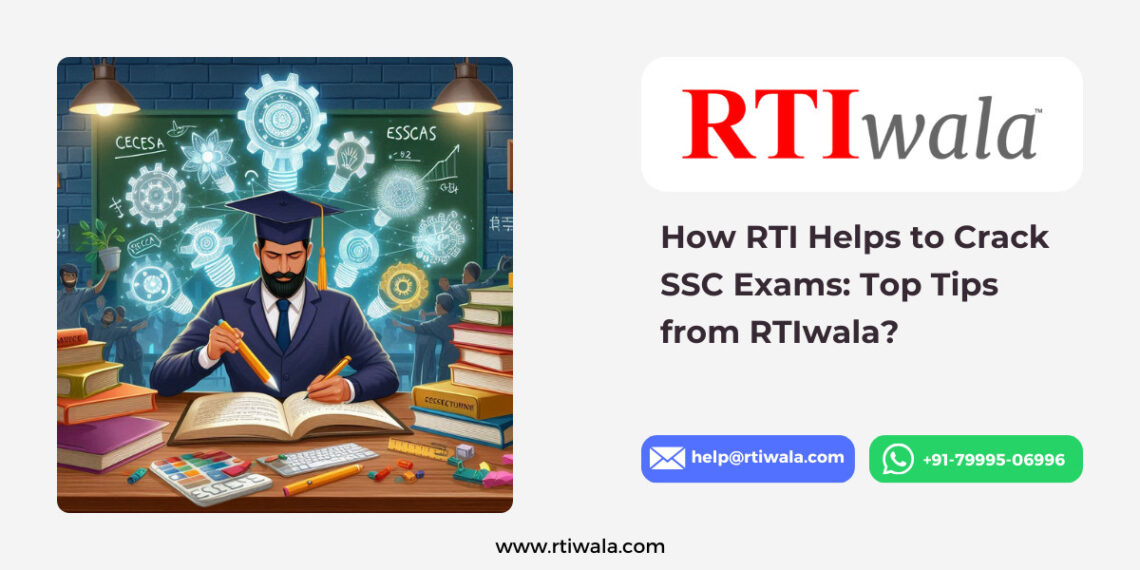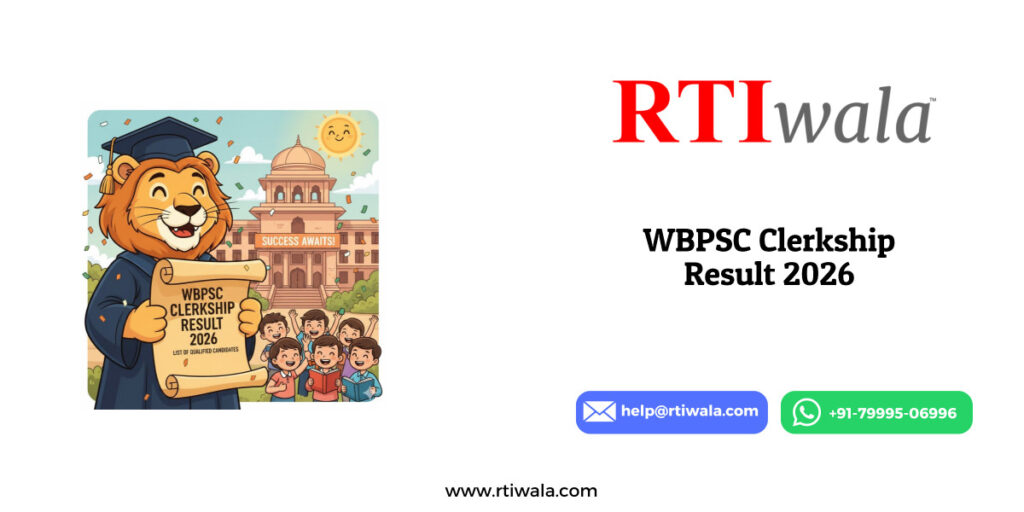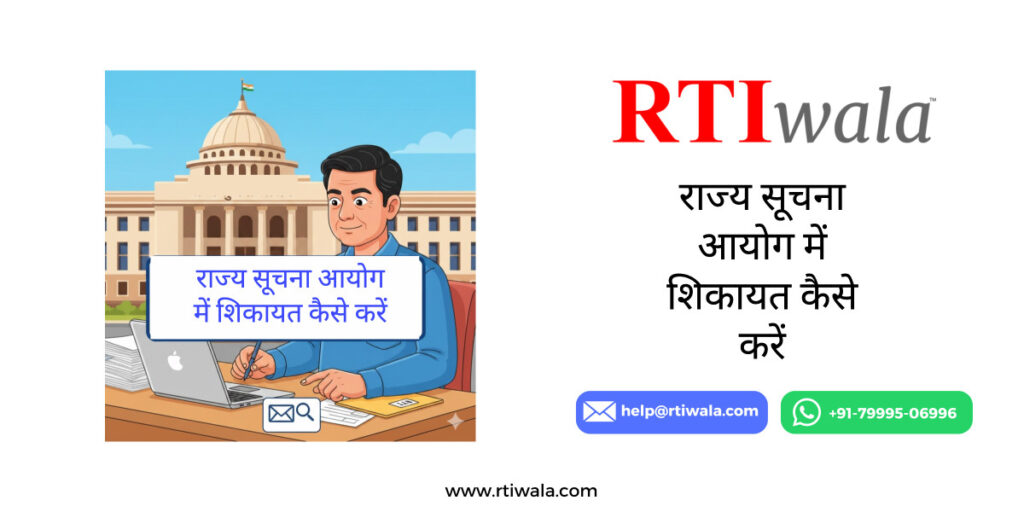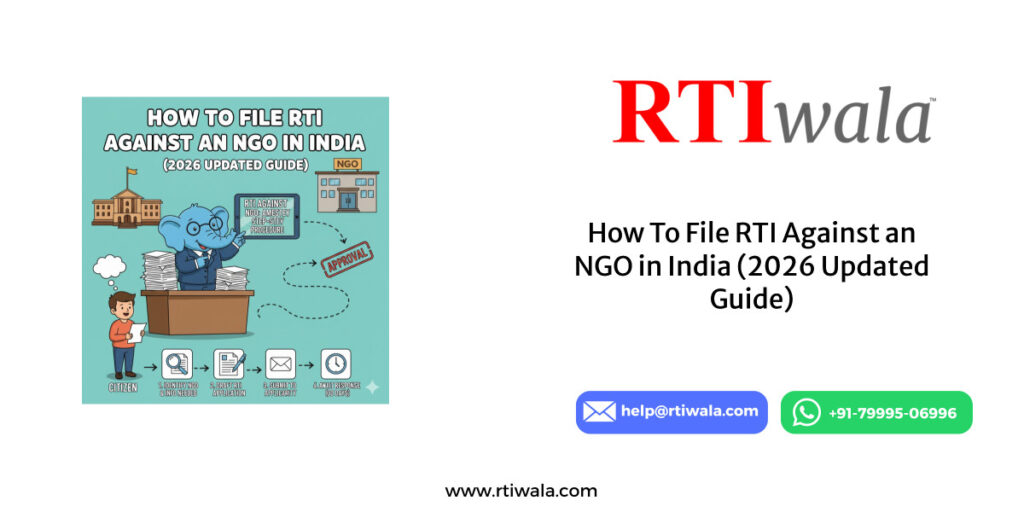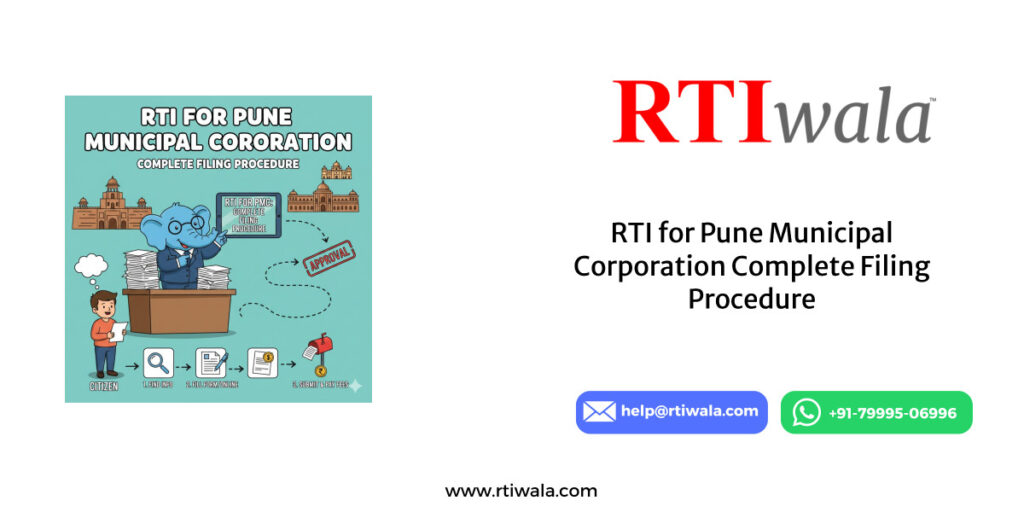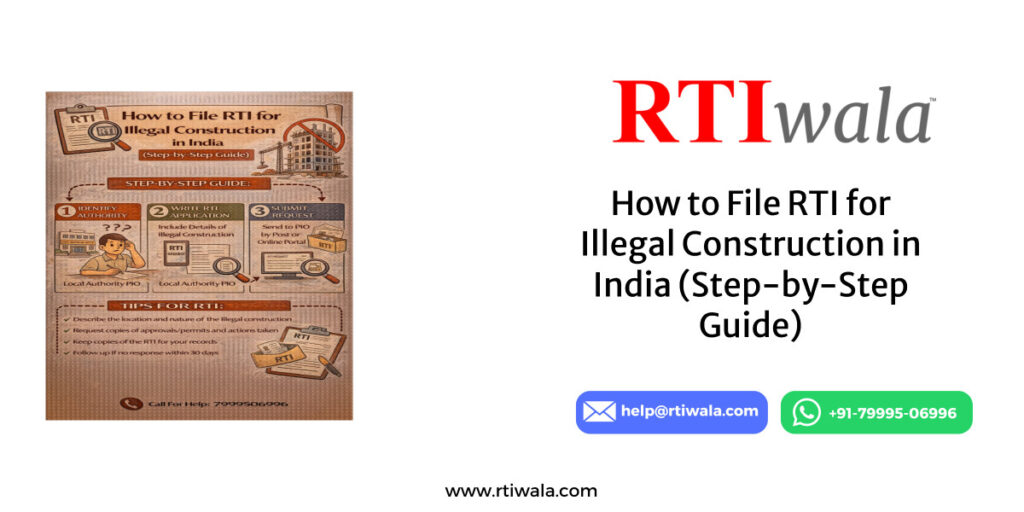The Staff Selection Commission (SSC) exams are a key path to securing prestigious government jobs in India, recruiting candidates for various roles in ministries, departments, and organizations under the Government of India. Preparing for SSC exams requires a well-planned strategy, a solid understanding of the exam pattern, and sometimes, the need to gather information through the Right to Information (RTI) Act. In this article, RTIwala will cover everything you need to know about SSC exams, offer preparation tips, and explain how you can use Online RTI to resolve any issues or queries related to the exam process.
Table of Contents
- Types of SSC Exams
- Eligibility Criteria
- How to Apply for SSC Exams
- Preparation Tips for SSC Exams
- Filing RTI for SSC Exams
- Common Issues and Solutions
- FAQs
- Conclusion
Types of SSC Exams
SSC conducts several exams, each designed for different job roles. Understanding the types of SSC exams will help you determine which one is best suited for your career goals.
- SSC CGL (Combined Graduate Level) Exam: For graduates seeking positions in various government ministries and departments.
- SSC CHSL (Combined Higher Secondary Level) Exam: For candidates who have completed their higher secondary education, targeting roles such as Lower Division Clerk (LDC), Junior Secretariat Assistant (JSA), and Data Entry Operator (DEO).
- SSC MTS (Multi-Tasking Staff) Exam: For non-technical staff positions that involve various tasks across departments.
- SSC JE (Junior Engineer) Exam: For engineering graduates looking to join as junior engineers in government organizations.
- SSC CPO (Central Police Organization) Exam: For recruitment in various police forces, including the Central Armed Police Forces (CAPF) and Delhi Police.
Each of these exams has specific eligibility criteria, application processes, and exam patterns.
Eligibility Criteria of SSC Exam
Before applying for any SSC exam, it is crucial to ensure that you meet the eligibility criteria. Here are the general requirements:
- Educational Qualifications:
- SSC CGL: Graduation in any discipline from a recognized university.
- SSC CHSL: Higher Secondary (10+2) or equivalent.
- SSC MTS: Matriculation or equivalent.
- SSC JE: Degree or Diploma in Engineering.
- SSC CPO: Graduation in any discipline from a recognized university.
- Age Limit:
- Varies for different exams and categories. Generally, the age limit ranges from 18 to 32 years, with age relaxation for reserved categories as per government rules.
- Nationality:
- Must be an Indian citizen, or a subject of Nepal/Bhutan, or a Tibetan refugee who came to India before January 1, 1962, with the intention of permanently settling in India.
How to Apply for SSC Exams
Applying for SSC exams is a systematic process. Here’s a step-by-step guide:
- Visit the Official SSC Website: Go to the official SSC website and navigate to the ‘Apply’ section.
- Register Yourself: Create a new account by providing basic details such as name, date of birth, email ID, and mobile number.
- Fill Out the Application Form: Log in with your credentials and complete the application form with accurate information.
- Upload Required Documents: Upload scanned copies of your photograph, signature, and relevant educational certificates.
- Pay the Application Fee: The application fee can be paid online through net banking, credit/debit card, or through offline modes such as SBI Challan.
- Submit the Application: Review your application form and submit it. Make sure to take a printout of the confirmation page for future reference.
Preparation Tips for SSC Exams
Success in SSC exams requires thorough preparation and a well-structured study plan. Here are some tips to help you get started:
- Understand the Exam Pattern and Syllabus: Familiarize yourself with the exam structure, types of questions, and marking scheme. Download the syllabus and focus on each topic.
- Create a Study Plan: Allocate time for each subject and stick to a regular study schedule. Make sure to include breaks and revision time in your plan.
- Use Quality Study Material: Invest in good textbooks, reference books, and online resources. Previous years’ question papers and mock tests are also valuable resources.
- Join Coaching Classes or Online Courses: If you need additional guidance, consider joining coaching classes or enrolling in online courses.
- Practice Regularly: Regular practice is key to mastering the subjects. Take mock tests, solve sample papers, and time yourself to improve speed and accuracy.
- Stay Updated: Keep an eye on current affairs, especially topics related to general knowledge and general awareness sections of the exam.
Filing RTI for SSC Exams
Sometimes, candidates face issues such as discrepancies in results, delays in application processing, or lack of information about the exam. In such cases, filing an RTI application can help you obtain the necessary information. Here’s how you can file an RTI for SSC exams:
- Identify the Information Needed: Clearly specify the details or information you require from the SSC.
- Draft the RTI Application: Write a formal RTI Application including your personal details, the specific information requested, and the reason for your request.
- Submit the Application: You can Submit your RTI application online or through the post. For online submissions, visit the official RTI portal and follow the instructions.
- Pay the Fee: An RTI application typically requires a nominal fee. Ensure you make the payment as directed.
- Follow Up: After submission, track the status of your RTI application to ensure timely responses.
Remember, delays or lack of response to your RTI application can affect your exam preparation and results. Don’t take any chances—seek professional assistance from RTIwala. Our experts can help you file your RTI application accurately and ensure you receive the information you need promptly.
Common Issues and Solutions
While preparing for SSC exams, candidates often face various challenges. Here are some common issues and their solutions:
- Discrepancies in Admit Card or Results:
- Solution: File an RTI application to seek clarification and correction of discrepancies. RTIwala can guide you through the process to ensure your issues are resolved efficiently.
- Delay in Application Processing:
- Solution: Use RTI to inquire about the status of your application. RTIwala can assist in expediting the process and providing accurate updates.
- Lack of Information on Exam Dates and Centers:
- Solution: Regularly check the official SSC website and notifications. If information is still unclear, file an RTI application. RTIwala can help you obtain precise details.
- Difficulty in Understanding the Syllabus:
- Solution: Seek guidance from coaching centers, online courses, or join study groups. Additionally, RTIwala can provide expert advice on how to navigate the syllabus effectively.
- Unclear Selection Criteria:
- Solution: File an RTI application to get detailed information on the selection criteria. RTIwala can assist you in drafting and submitting the RTI application to obtain accurate details.
FAQs
- What if I don’t receive a response to my RTI application?
- Answer: If you don’t receive a response within the stipulated time frame, you can file an appeal to the higher authority. RTIwala can assist you in this process to ensure you get the information you’re seeking.
- How can I check the status of my SSC exam application?
- Answer: You can check your application status on the official SSC website using your registration number. For further assistance, RTIwala can help you track and follow up on your application status.
- What should I do if there’s a discrepancy in my SSC exam results?
- Answer: Discrepancies in results can be addressed by filing a complaint or RTI application. RTIwala offers expert guidance on how to file an effective RTI to resolve such issues.
- Can I file an RTI to know the selection criteria for SSC exams?
- Answer: Yes, you can file an RTI to request information about the selection criteria. RTIwala can assist you in drafting and submitting the RTI application to obtain accurate details.
- How long does it take to receive a response to an RTI application?
- Answer: The response time for an RTI application is typically 30 days. If you need quicker responses or have specific concerns, RTIwala can expedite the process for you.
Conclusion
Preparing for SSC exams is a journey that requires dedication, strategic planning, and access to accurate information. By understanding the exam types, eligibility criteria, and preparation strategies, you can enhance your chances of success. In cases where information is not readily available, filing an RTI application can provide the clarity you need. Remember, for any assistance with the RTI process, RTIwala is here to guide you every step of the way. Don’t let information gaps hinder your.












































